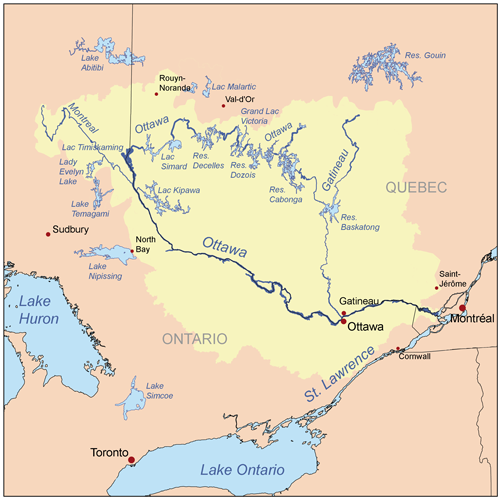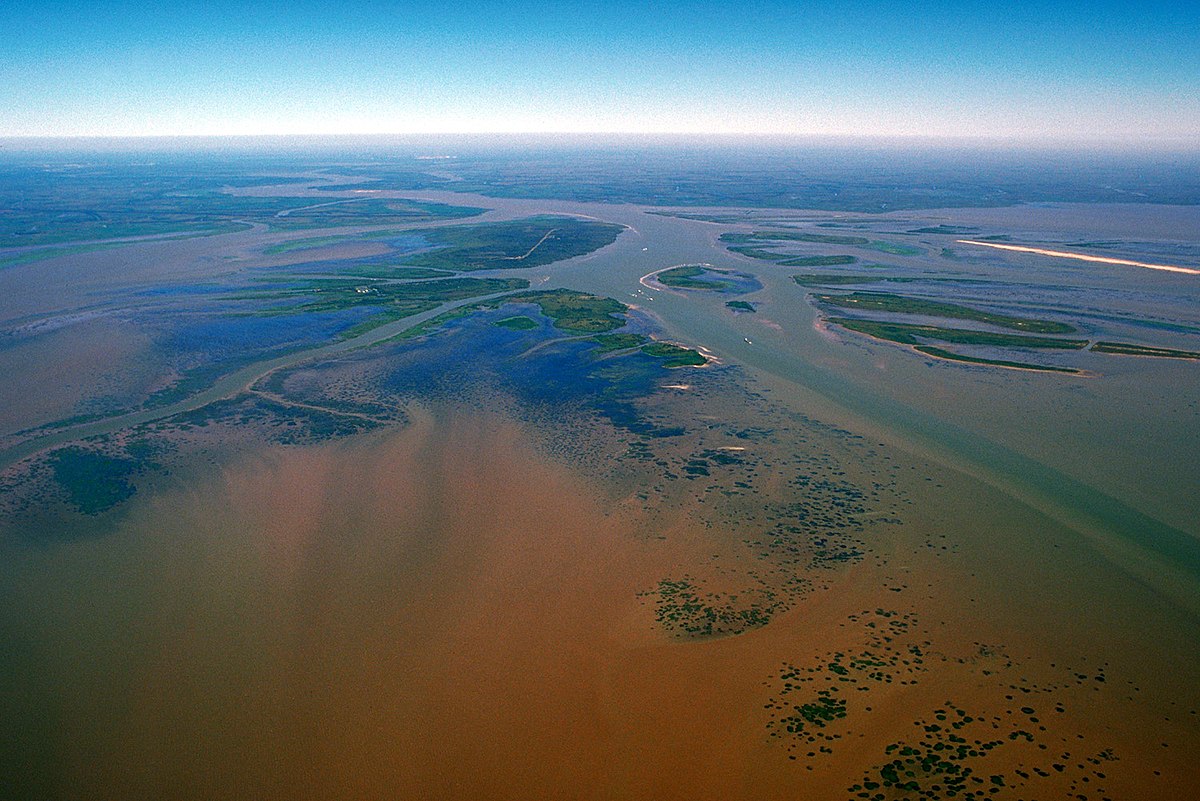Skallagrim
Well-known member
It is a border following the Ottawa River and then cutting to Lake Nipissing. See this map:The Nipissing Line - is this a NS or WE line?
If NS - the US would get land to the west OR east of it - I'm very confused ...

In this scenario, the border would run from (as things are marked on the map) Cornwall on the St. Lawerence, to the river bend just South-West of Ottawa, then along the Ottawa River, then straight West to Lake Nipissing.
Some leeway exists for specific negotiations. The 1763 border gave a line running South of the Ottowa River, cutting from the St. Lawrence to Lake Nipissing in a straight line. Quebec would be pushing for that (so they control the Ottawa River). They may wellget their way on that.
West of Lake Nipissing, things are open to interpretation. That map I linked in post #3 shows that as of 1774, the British marked the difference between Canada and Prince Rupert's Land (a.k.a. the Hudson Bay territory) as following the watersheds. In the ATL negotiations, the USA will want all of "1774 Canada" that doesn't become Quebec.
The British, conversely, can argue "we keep the Great Lakes coastline West of Lake Nipissing and South-East of Lake of the Woods." This, however, may not be attractive to Britain. The only way to get there directly would be through Prince Rupert's Land, which is a ludicrous wilderness trek. I'm confident that Britain would cede the entire Great Lakes coastal region to the USA, in exchange for free civilian access to the Great Lakes. (That's smarter than doggedly insisting on keeping your shitty strip of coastline in the middle of nowhere, and subsequently not getting free access to the Lakes via the USA and Quebec.)
As I've reasoned before, it's in fact quite realistic that Britain might unload all of Prince Rupert's Land on the USA. There are loads of highly attractive trade concessions et cetera that you can get in exchange, after all. With the Maritimes lost, Rupert's Land would appear basically unprofitable. (Because getting there would be borderline impossible, except via the USA. While the British will no doubt demand -- and get -- unimpeded trade acces, the simple fact is that America will have the demographic adavantage and will be much closer. So even if Britain keeps Rupert's Land... it'll be inhabited by an overwhelming American majority in a matter of decades.)
I agree with @stevep that Britain will probably keep Newfoundland, though. I hadn't given that much thought, but keeping it is more sensible than giving it away. They only want it for the fishing rights, so it costs nothing to keep. If the USA is friendly, you won't even have to protect it, really.
They may not squeeze France out -- they didn't even in OTL -- but I think that if Quebec is independent, it'll side with Britain and the USA against the French Republic. Quebec was conservative and monarchist; they'd hate Robespierre and his bullshit. So a possible outcome is that St. Pierre & Miquelon are handed over to Quebec during the wars.I still think Britain would keep Newfoundland for its economic value, i.e. the Grand Banks. Its possible they might make a deal with the US, possibly with France being squeezed out? However could they trust the US who went back on a number of agreements in this time period. [For instance refusing compensation for loyalists who choose to resettle and then after 1814 blocking British trade up the Mississippi].
As far as trusting the USA in concerned: this would, by default, be a USA politically dominated by the pro-British faction. You basically get a bunch more Federalist states, and also pretty much all loyalists are now US citizens. The compensation for loyalists was one thing Franklin was willing to negotiate on, so this scenario (esp. with those loyalists set to become US citizens), I can see the USA being reasonable about that. The messing with British trade (and in fact the whole War of 1812 debacle) was a result of Democratic-Republican policies. They were pro-Republican France. They won't be in power in this ATL. Jefferson and Madison will never be President.
I think the result of this scenario is that the 'era of good feelings' between the USA and Britain simply starts in 1782. And it'll be friendlier than in OTL.


